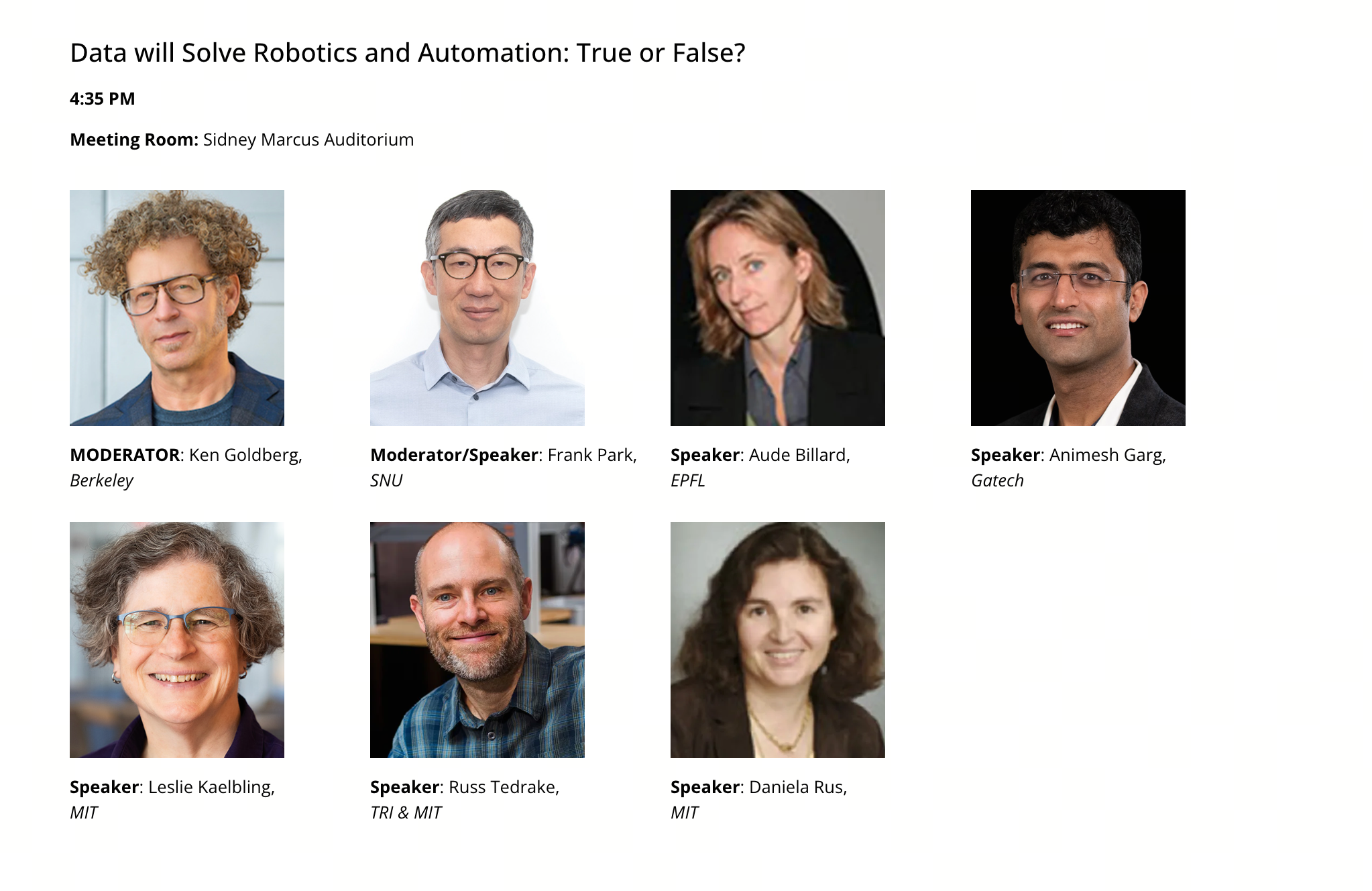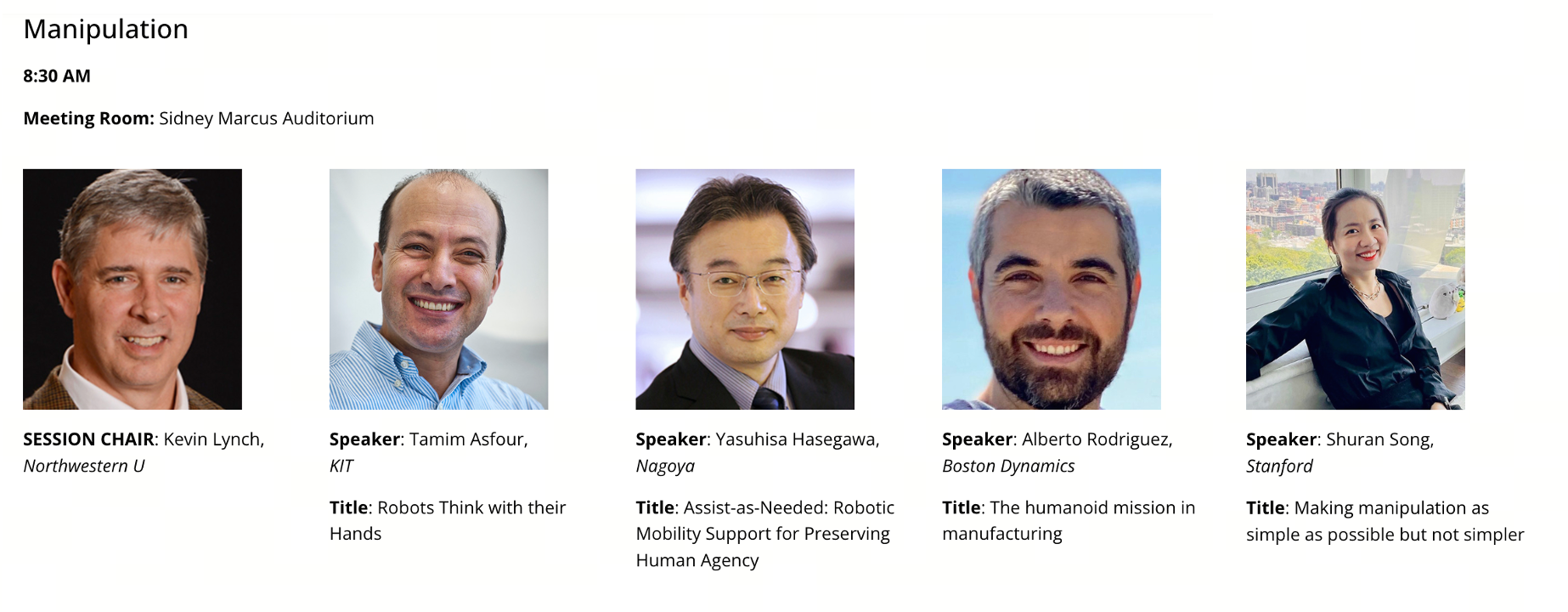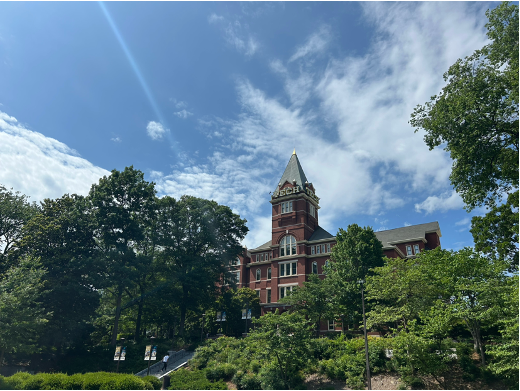ICRA 2025
This is a brief summary of my experience at ICRA 2025 in Atlanta, Georgia (May 18 - 23), consisting with different excellent works, keynotes and communications. It’s really a great conference, and I hope to share some highlights with you all! 😊
🔥 A Fantastic Debate — Data will Solve Robotics and Automation: True or False?

One of the most engaging sessions I attended at ICRA 2025 was this lively debate on a core question: “Is data all you need?” Ken kicked things off by emphasizing that everything hinges on the scale of data. Interestingly, most of the live audience leaned toward the False side — reflecting real-world experience with deploying data-driven models in complex, messy environments.
Here’s a quick breakdown of the debate:
- ✅ True Side
-
Data is the foundation of AI and robotics.
-
With sufficient data, models can generalize to unseen scenarios.
-
LLMs and foundation models have shown strong performance across domains — even in robotics.
-
- ❌ False Side
-
No model can perfectly capture the real world using limited data.
-
Real-world environments are inherently dynamic and unpredictable.
-
Data-driven models often fail when faced with out-of-distribution inputs.
-
My Thoughts
Personally, I was on the False side of the debate — but I’d say it’s not a black-and-white issue.
Whether you’re using classical control methods or modern learning-based approaches, data is indispensable. The real question is whether data alone can solve the complexities of robotics.
Take PID control as an example. While it’s not considered a “data-driven” method in the machine learning sense, tuning it still relies heavily on feedback data and human experince. On the other hand, learning-based methods explicitly rely on large datasets to train models — making them inherently data-driven. Even humans, in a way, are models trained on life-long data.
So yes, I argued against the proposition, but that doesn’t mean I dismiss the central role of data in robotics. Quite the opposite — data is necessary, but not always sufficient.
The Debate Vibe
What made this debate so enjoyable wasn’t just the topic, but the people.
Professor Leslie was full of energy — a delightful and charismatic presence who truly lit up the room. Her enthusiasm was contagious and kept the audience engaged from start to finish.
Ken, on the other hand, was absolutely hilarious. He delivered his points with a sharp, witty sense of humor that had just the right amount of bite — never mean-spirited, but always entertaining. Below is a photo of him and me after the session.

🧠 Keynote on Manipulation

The ICRA 2025 keynote on manipulation brought together leading researchers to discuss the future of robotic interaction with the physical world.
Professor Shuran Song also organized a workshop on Dexterous Manipulation, where she introduced two key strategies for tackling the challenges of dexterous manipulation:
-
Reducing the Embodiment Gap – representations like DexUmi.
-
Represent the Embodiment Differences in Policy Design – using unified representations like GET-Zero.
📍 On the Ground @Atlanta
Atlanta is a vibrant city, home to renowned institutions like Georgia Tech and Emory University, as well as the world-famous Coca-Cola company. During my visit, I had the chance to explore the Georgia Tech campus and the World of Coca-Cola Museum — both inspiring in very different ways!

